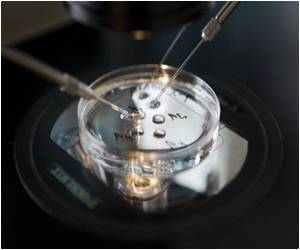
Now, data suggests that the vitamin's benefits may only apply to certain racial groups - while white women can boost their IVF success rates with vitamin D, this doesn't appear to be true for Asian women.
In vitro fertilization (IVF) is a popular option for couples struggling to conceive - it involves extracting eggs from a woman and fertilizing them with sperms outside of the body. The resulting embryo is then transferred into the uterus.
To find out whether vitamin D carries the same benefits in women of different races, Briana Rudick at Columbia University Medical Center in New York and her colleagues compared vitamin D levels and IVF success rates in white Hispanic, white non-Hispanic, and Asian women from south-east Asia and the Indian subcontinent.
All 188 women included in the study were having IVF for the first time.
Of these women, only 42 percent had the recommended levels of vitamin D - just over a third had insufficient levels, while a fifth were completely deficient.
Advertisement
Unexpectedly, the reverse was true for Asian women as those with the lowest vitamin D levels were most likely to get pregnant.
Advertisement
However, the racial difference is something of a mystery.
"It's an intriguing association that merits further study," Pal added.
Even though Rudick's team aren't sure why these differences exist, they think it might have something to do with the enzyme that deactivates vitamin D.
According to them, there are also ethnic differences in the gene for the vitamin D receptor, which may affect the link between vitamin D and conception.
The study has been published in the journal Human Reproduction.
Source-ANI













